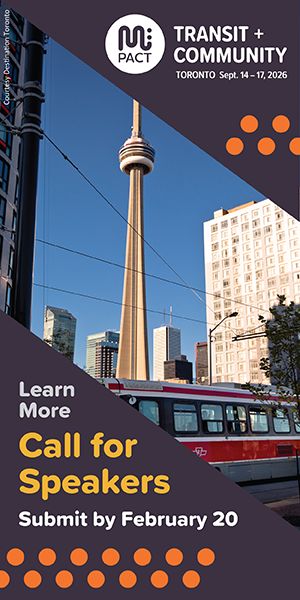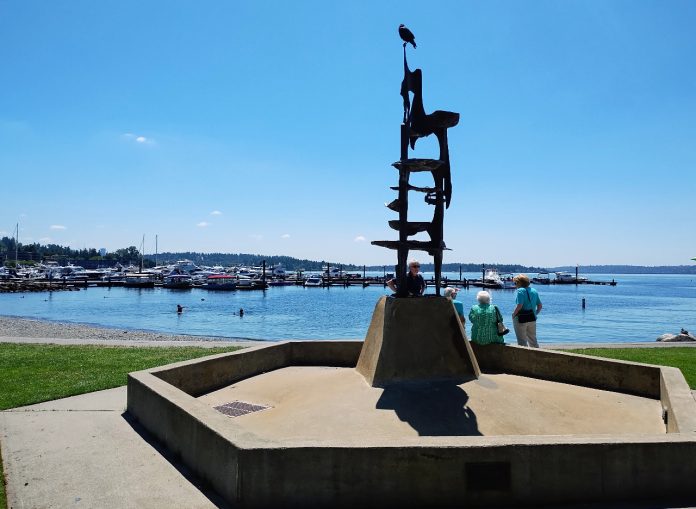
In this year’s November general election, the city of Kirkland turned into one of the region’s biggest battlegrounds, after a group of residents aiming to hit the brakes on the city’s current pro-growth direction tried to flip the city council. With the results now in, it’s clear that the slow growth push fell short, with the more progressive candidate eking out a victory in three of the four council races on the ballot in Kirkland.
Cherish Kirkland, a group formed to push back on housing capacity increases throughout Kirkland’s lower-density neighborhoods, had been advocating for more “balanced and community-minded voices” on the council. Instead of directly endorsing candidates, residents aligned with the group advocated for a so-called “sanity slate” of candidates, pledging to take the city in a different direction, via Facebook posts, mailing lists, and anonymous websites.
“The stakes are high in the Kirkland City Council Elections: Kirkland will rezone neighborhoods in 2026,” one of the websites set up to promote the slate read. “The Sanity Slate supports balanced growth that retains single-family and middle-housing residential zoning.”
Never mind that single-family zoning hasn’t existed in Kirkland since 2020, when the city council adopted a middle housing code allowing two and three-unit homes across the entire city — years ahead of a state law that pushed other cities to do so. The dramatic rhetoric also ignores that a proposal to consider allowing additional density along the city’s transit corridors (including the planned RapidRide K Line) was pulled out of the city’s Comprehensive Plan in 2024 by Kirkland’s Planning Commission, leaving few major upzones on the city’s immediate workplan.
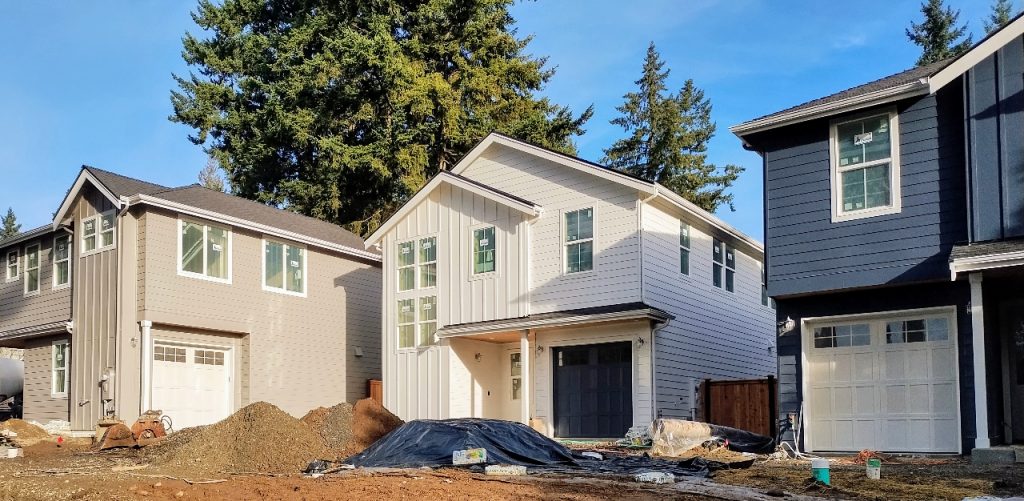
The victory for pro-housing candidates in Kirkland came alongside other big wins for Eastside progressives this year, including a full sweep on the Redmond, Woodinville, and Newcastle City Councils. In Bellevue, progressive Naren Briar was able to unseat eight-term incumbent Conrad Lee to become the first Kurdish-American elected to public office in the United States.
If the voting majority in Kirkland ultimately sent one unified message, it’s that they’re happy with the current council’s priorities and aren’t interested in pulling things back. They re-elected all three incumbents running, including Jay Arnold (who serves as the city’s Deputy Mayor), Neal Black, and Jon Pascal. Arnold and Black both voted to approve Kirkland’s updated Comprehensive Plan last year, which sets a priority moving the city toward more 10-minute neighborhoods, where more residents have access to goods and services close to where they live.
Pascal, who has been on the council since 2018, opposed the plan in what was seen as a sharp heel-turn, instead arguing the city should be more single-mindedly focused on concentrating growth in areas like Downtown Kirkland, Totem Lake, and the area around the planned NE 85th Street Stride bus rapid transit station. He was the only Cherish Kirkland-aligned candidate to win this year, beating Kurt Dresner, a leader with the urbanist group Liveable Kirkland, by a little over four points.
To fill the shoes of retiring Councilmember Penny Sweet, serving in office since 2010, voters picked the more pro-growth Shilpa Prem over Cherish Kirkland-aligned Catie Malik, who had been taking a second swing after an unsuccessful council run two years ago. Prem ran on a clear platform of wanting to “provide more housing options and increase affordability” and increase Kirkland’s sustainable transportation options, and was ultimately endorsed by a majority of current councilmembers including Sweet herself.
The Urbanist Elections Committee (on which I serve) endorsed Kirkland’s pro-housing slate of Prem, Arnold, Black, and Dresner, as well.
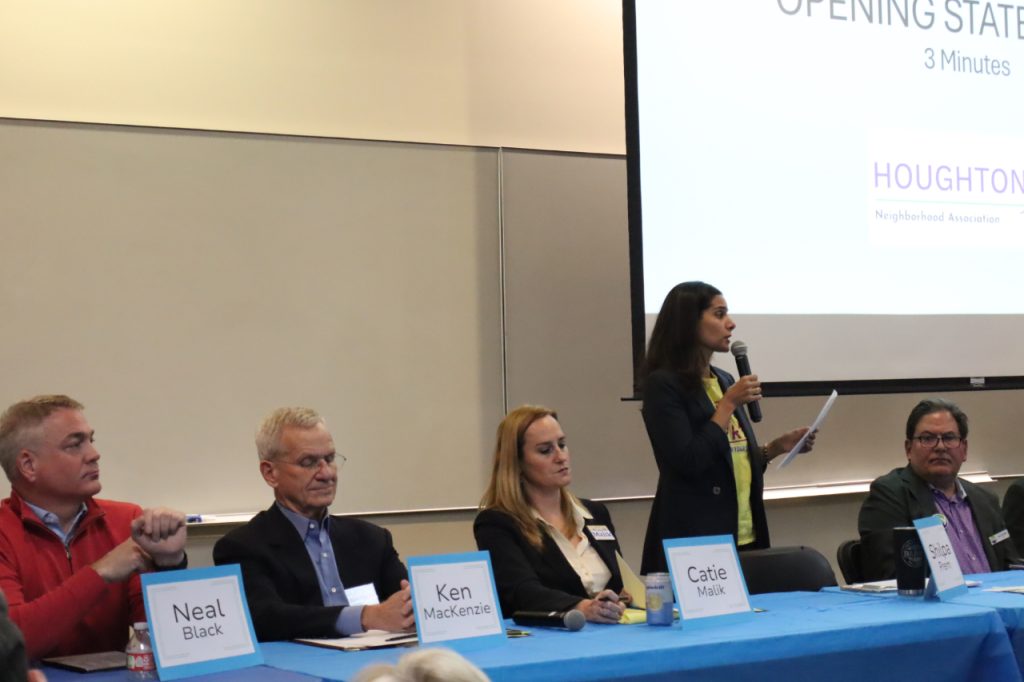
“I think Kirkland voters chose to stay the course and continue this city’s leadership on issues like housing, sustainability and on homelessness response. They had a very clear choice against an opposition slate and chose to return incumbents and elect a pro-housing candidate in Shilpa Prem,” Arnold told The Urbanist.
Arnold said he’s looking ahead to work to rezone several key properties in the Juanita area — a move intended to catalyze the area as a “neighborhood center” — along with work to bring the Seattle Kraken to a potential new iceplex at the former Houghton Park and Ride. He described the coming years as somewhat of a “reset” where the council decides what other major projects to tackle.
While websites promoting the “sanity slate” meticulously cataloged the percentage of donations coming from outside the city for the progressive candidates, the outside spending by political action committees (PACs) was incredibly lopsided toward them. A total of just under $46,000 went to promote the four slow-growth candidates, compared to around $4,000 to support the progressives. Among the groups putting their money in was the Jackson Legacy Fund, a group bankrolled by the Washington Association of Realtors, Airbnb, Puget Sound Energy, and the Washington State Auto Dealers.
At the same time the Jackson Legacy Fund was giving a boost to the “sanity slate,” they were also spending more than $150,000 in support of Representative Amy Walen, a former Kirkland City Councilmember challenging State Senator Vandana Slatter on a more pro-business, anti-tax platform. The King County Council picked Slatter ahead of Walen to fill a Senate vacancy earlier this year. Walen went on to lose to Slatter by more than 17 points. Other candidates around the region that the Jackson Legacy Fund spent on behalf of were Everett Mayor Cassie Franklin, who was reelected, and Tacoma Councilmember John Hines’s unsuccessful mayoral run.
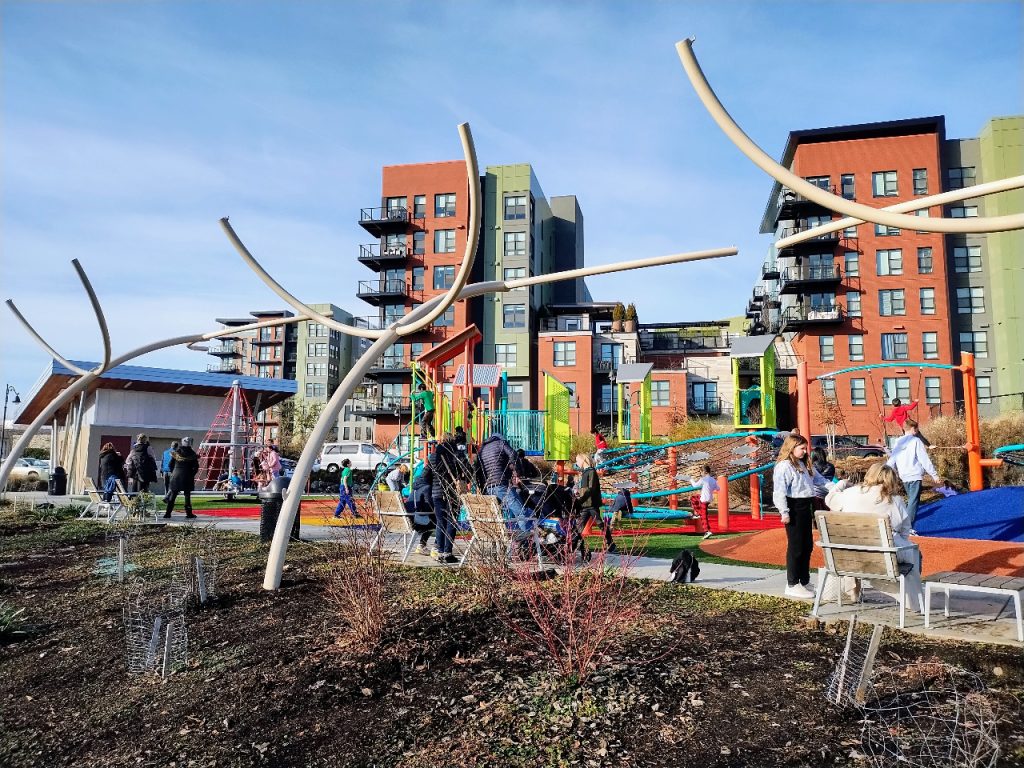
The Pascal-Dresner race was almost certainly the most expensive council campaign in Kirkland history, with Pascal’s campaign spending around $85,000 to Dresner’s $62,000, and outside spending adding close to $33,000 in Pascal’s column, compared to only around $700 for Dresner. In a conversation with The Urbanist, Dresner lamented the fact that such an intense pace of spending will likely portend a new normal in a city of Kirkland’s size.
“I’m worried that Kirkland elections are permanently going to be way more expensive now. We went from a world where you could run on $30 or $40,000 pretty easily to one where well over six figures were spent to defend my opponent,” Dresner said. “I’m relieved that the misinformation and the sensationalism around the Comp Plan didn’t cost us in terms of actually having a council that wants to be realistic about our future, that’s optimistic about our future, and that wants to make sure Kirkland keeps working. It has to be a city that works for everyone.”
Looking at the election results, Neal Black’s takeaway was that the city needs to do a better job of communicating what it’s doing with residents more broadly, despite the fact that a very fractured information environment makes that work fit somewhere on a spectrum of hard to impossible. Black fared the best out of all incumbents in his race against Ken MacKenzie, who adopted a slogan of “Take Kirkland Back” that likely turned many liberal Kirkland voters off.
“I think a majority of people in Kirkland are happy with the direction the city is going. I think we learned that there are legitimate concerns, or questions, people are concerned about,” Black said. “We’ve got to do an even better job of communicating to the public in Kirkland all the work that we’re doing: in coordinating with the schools, in approving the funding mechanisms to afford to invest in the improved transportation infrastructure, [the fact] that we are working on multimodal transportation and safe bike lanes and safe pedestrian crossings at the same time that we’re trying to make intersections work, especially intersections that we know are going to have increased pressure on them, because that’s where we’re going to concentrate the future growth in our neighborhood centers and our urban centers. “
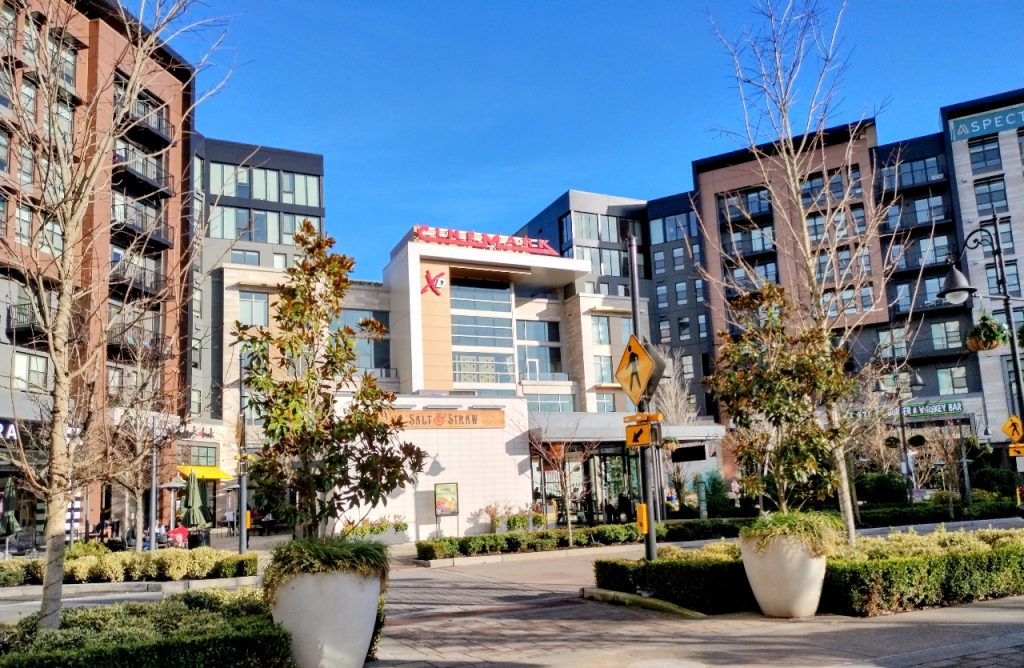
“We need to tell the story better, and not because we’re trying to sell pig in a poke, but because people deserve to understand and know what the success is, and the hard work that the local government is doing on all these fronts,” Black continued. “Otherwise, it’s easy to become concerned and have questions. I think the big lesson, ultimately, is people are proud of their Kirkland government. They have voted to keep going in the direction.”
Bev Marcus, a former leader with Liveable Kirkland who recently moved just across the Kirkland border into Redmond, told The Urbanist that the challenge posed by factions urging the city to hit the brakes on growth should be taken very seriously, even if they weren’t able to get across the finish line this year.
“There was victory for urbanism, but I think that it showed there is some strong opposition to that, well-funded opposition. And I think everyone needs to be aware of that, and tread accordingly,” Marcus said. “I’m not saying to pull back, but just to be aware and not be surprised at what’s going to happen in the future. This opposition, in my opinion, is not going away.”
In a Facebook post acknowledging her loss that fell short of being a full concession earlier this month, Catie Malik made that fact pretty clear. Referencing the fact that initial ballot returns initially showed her in the lead ahead of Prem before all votes were counted, Malik suggested that voters getting their ballots in later were less informed than those who voted early.
“Regardless of the results to be certified later this month, in another two years I’m confident we’ll come back stronger. This time we’ve reached almost 50% of voters – and an even higher percentage of earlier informed voters – with an entirely grassroots campaign again. We brought so many lost Kirkland voices back to the ballot box, and that kind of progress doesn’t just disappear in the next 2 or 4 years,” Malik wrote. “As the County’s bandaids and City Hall’s experiments get closer to home – more Kirklanders will wake up and respond.”
After a campaign that drew a spotlight onto how Kirkland plans for growth, it’s clear that both sides are interested in maintaining that focus going forward — for better or worse. But it will fall to the council’s progressive majority to show they’re actually making headway in addressing the city’s problems and moving Kirkland toward a place that works for everyone.
“Kirkland has been a leader in housing,” Marcus said. “I hope they continue on that path and they don’t succumb to fear-based decision making.”
Ryan Packer has been writing for The Urbanist since 2015, and currently reports full-time as Contributing Editor. Their beats are transportation, land use, public space, traffic safety, and obscure community meetings. Packer has also reported for other regional outlets including BikePortland, Seattle Met, and PubliCola. They live in the Capitol Hill neighborhood of Seattle.



